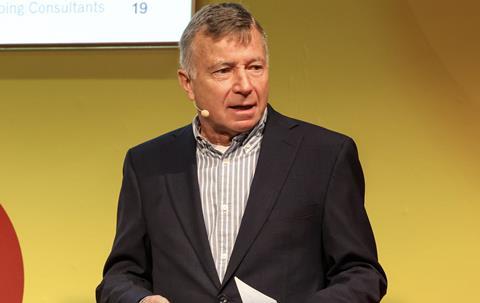The opening Logistics Hub session at this year’s Fruit Logistica offered valuable strategic insights into the reefer shipping industry

The first day of Fruit Logistica in Berlin featured a special keynote session on the Logistics Hub stage, discussing the crucial role that refrigerated ocean transport continues to play in the global supply chain.
Philip Gray, reefer analyst at Drewry, presented his perspective on the international reefer market.
“It’s all about trade wars these days,” he opened, “and that has everybody a little bit nervous. Over the next three days, between people and traders in the industry they will be trying to figure out what’s going to happen [in future].”
Gray highlighted the seaborne reefer figures for 2024, with overall growth standing at 2.5 per cent, while he also pointed out that deciduous fruit volumes grew 7 per cent year-on-year.
When it came to modal share, containers remained “the king of the story”, he said, but somehow specialised reefers were “still hanging on”, coming more into play when the business was enduring disruption.
Indeed, containerised reefer traffic is expected to hit 6mn laden FEU in 2025, with continued healthy growth for the business forecast towards 2029.
“Right now, it is all about capacity as well,” Gray continued. “We have new alliances coming, and a realigning of capacities. Worldwide container capacity grew over 10 per cent last year.
”All this capacity but freight rates didn’t really go down, and container lines are still making a lot of money,” he noted. “It’s quite telling how things like the closure of the passage through the red sea has helped to absorb a lot of extra capacity. This year will also be pretty strong – it is an interesting situation.”
Gray highlighted how well the container lines had been performing, and anticipated that earnings would remain similar this year to 2024.
“We need partners in the logistics chain to make money, you need a lot of money to invest in decarbonisation and the sustainability of our planet,” he added.
“It’s good for our industry, because we need to grow good bananas, citrus and deciduous fruit, and have farmers who have a good lifestyle – no farmers, no food.”



